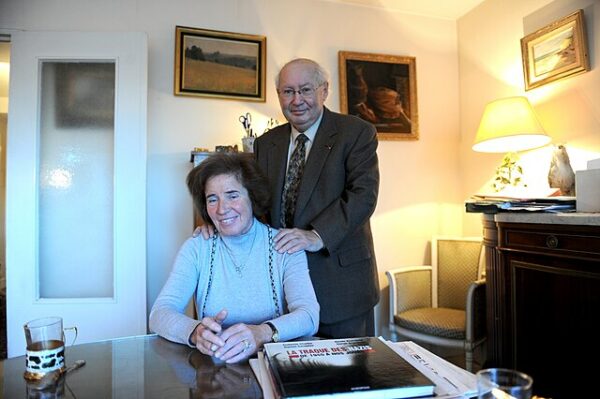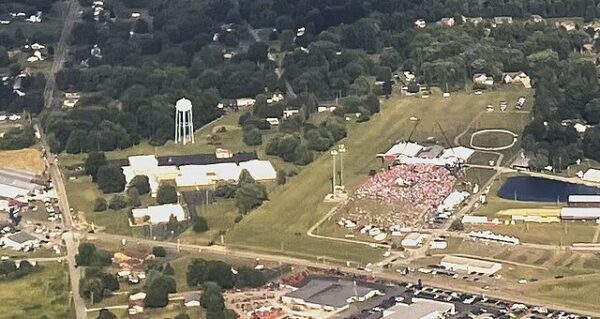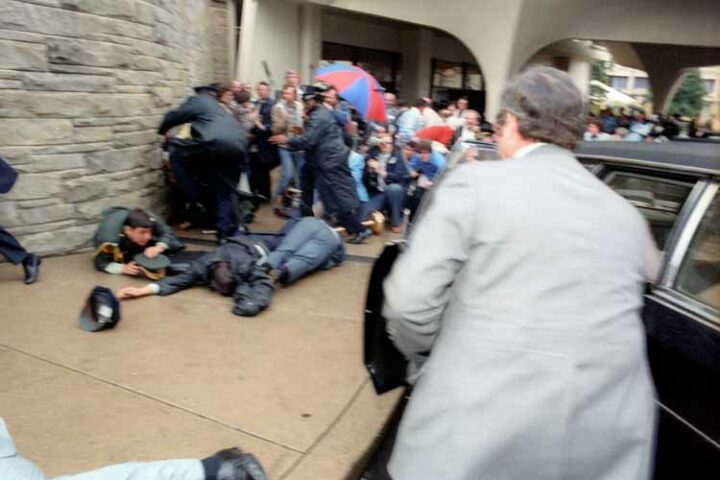In the early hours of July 9, 1979, a powerful car bomb ripped through the quiet suburban calm of a Paris neighborhood, targeting two of the most prominent Nazi hunters of the postwar era. The blast destroyed a Renault vehicle parked outside the home of Serge and Beate Klarsfeld, a husband-and-wife team renowned for their relentless pursuit of fugitive war criminals from the Third Reich. Though the explosion caused significant property damage and sent shockwaves through French society and beyond, both Klarsfelds escaped unscathed. The assassination attempt was quickly denounced as a politically motivated act of terror—one intended to silence those who had devoted their lives to holding perpetrators of the Holocaust accountable.
Serge Klarsfeld, a French lawyer and historian, and his German-born wife Beate had, by 1979, spent over a decade compiling dossiers on Nazi officials who had evaded justice after World War II. Their work had been instrumental in the arrest and prosecution of notorious figures such as Klaus Barbie, the “Butcher of Lyon,” and Kurt Lischka, the former Gestapo chief in Paris. More than just archivists or legal strategists, the Klarsfelds were public agitators—confronting former Nazis, lobbying governments, and mobilizing international opinion against the persistent presence of unrepentant war criminals in European society.
The bombing on July 9 appeared calculated and symbolic. It was not merely an act of attempted murder; it was an effort to intimidate a broader movement for justice and historical reckoning. French investigators, alarmed by the sophistication of the device, immediately suspected far-right extremists with international connections. Their suspicions would soon be borne out. Days after the attack, the self-styled Fédération d’action nationale et européenne (FANE), a neo-Nazi organization, claimed responsibility for the bombing. The group had long condemned the Klarsfelds for what it termed their “defamation of the German people” and accused them of perpetuating what Holocaust deniers and fascist sympathizers called the “myth of the gas chambers.”
Despite the lack of physical injury, the Klarsfelds were shaken by the attack. But if their enemies had hoped to intimidate them into silence, the effort backfired. In a defiant statement to the press, Serge Klarsfeld declared that the bombing had only “reinforced our determination.” Beate added, “Those who try to scare us do not understand that fear has long since ceased to guide our lives. We are not backing down.”
Public reaction in France was swift and overwhelmingly supportive. President Valéry Giscard d’Estaing condemned the attack as “an assault not only on individuals, but on the conscience of the Republic.” Human rights groups, Jewish organizations, and Holocaust survivors rallied behind the Klarsfelds, calling for greater governmental vigilance against the resurgence of neo-fascist violence. German Chancellor Helmut Schmidt sent a message of solidarity to the Klarsfelds, while legal authorities in West Germany promised renewed cooperation in extraditing Nazi suspects.
The attempted assassination of the Klarsfelds marked a chilling escalation in the struggle over memory and justice in postwar Europe. While the 1970s had witnessed several landmark trials of former Nazi officials, it had also seen the rise of revisionist movements and a resurgence of violent ultranationalism, particularly in France and Germany. The bombing underscored the fact that the battle to confront the legacy of Nazism was not confined to courtrooms or archives—it extended into the streets, and at times, into private homes.
Indeed, the Klarsfelds’ work had always been deeply personal. Serge’s father, Arno Klarsfeld, was deported from France to Auschwitz in 1943 and murdered there—a tragedy that instilled in Serge a lifelong commitment to justice. Beate, too, had made her mark by confronting former Nazis in ways that defied the conventions of diplomacy: in 1968, she famously slapped German Chancellor Kurt Georg Kiesinger in public, accusing him of whitewashing his Nazi past.
In the years that followed the bombing, the Klarsfelds continued their activism unabated. They played a pivotal role in the eventual capture of Klaus Barbie in Bolivia in 1983, as well as in drawing international attention to the complicity of the Vichy regime in the deportation of French Jews. Their work—combining legal rigor, moral clarity, and public confrontation—has inspired a generation of human rights advocates and Holocaust educators.





